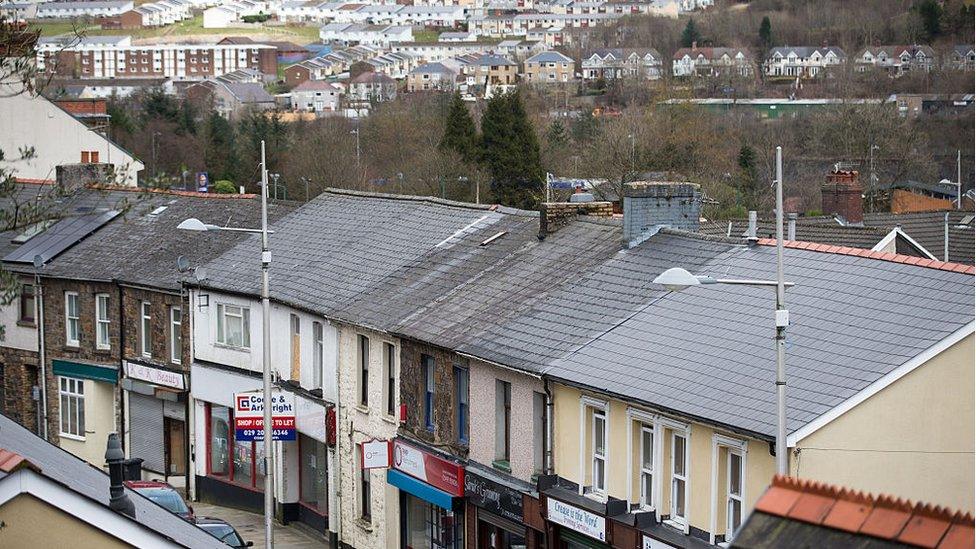Virus crisis expected to 'level down' UK economy
- Published
- comments

The coronavirus crisis could "level down" the UK economy with London and the South East expected to bounce back more quickly than Hull and Bradford.
Sectors such as finance and construction will be worst affected by the pandemic, a report from the Social Market Foundation think tank warned.
Initially, that means London and the South East would be worst hit, but other areas face a slower recovery.
The Treasury said it was committed to "levelling up" every region of the UK.

The worst-affected areas in the short-term:
Camden and City of London
Kingston, Chelsea, Hammersmith and Fulham
Lambeth
East Lancashire
Hounslow and Richmond upon Thames
Ealing
Tower Hamlets
Westminster
Swindon
West Essex

"After the financial crisis, London recovered quickly because of a concentration of jobs in banking and insurance," the Social Market Foundation (SMF) report said.
"Whilst these jobs will face the biggest initial blow from coronavirus, evidence suggests the capital is more economically resilient and the labour market will recover quicker than the rest of the country."
But that is not the case in areas where unemployment rates were above the UK's average of 3.8% last year, according to the SMF, a centrist think tank.
It said those areas, which include Manchester and Peterborough, face the slowest recovery.

The areas that will find it hardest to bounce back:
Hull
Bradford
Walsall
Manchester
Peterborough
Lambeth
Thurrock
Brent
Redbridge and Waltham Forest
Sandwell

"Policy makers need to recognise that national or even regional data can conceal the local realities of this recession and should not rely on it when making important decisions for the recovery from coronavirus," said Amy Norman from the SMF.
"The economic severity of coronavirus will be felt across many places, but we must remember that this recession does not occur in isolation," she said.
"Many people and places outside of the capital will be particularly vulnerable due to the lasting hardships of the past decade."
The report also found that young people were more vulnerable to the economic impacts of the virus crisis.
It said people between the ages of 20 and 24 were least likely to work in sectors like education, health or public administration, which have seen fewer people furloughed or made redundant.
"Young people's jobs are most at risk, but a quarter of older workers also face job instability," Ms Norman said.
"Politicians have announced the guaranteed youth opportunity but are light on support for those in older categories who will find themselves out of work."
A Treasury spokeswoman said: "As we recover from the outbreak we remain committed to levelling up every region and nation of the UK - helping ensure they return to growth, jobs and prosperity in a way that is safe.
"Alongside our generous package of economic support that has protected millions of jobs and businesses, we're supporting communities up and down the country. At Spring Budget 2020, we allocated more than £6bn for local transport in towns and cities across England, £5bn to support the rollout of the fastest broadband, and committed to a £2.5bn skills fund to help our communities thrive."
- Published4 December 2019

- Published27 February 2020
